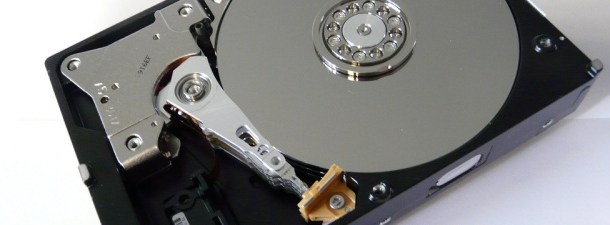If your hard drive is about to reach its capacity, here are some tips for freeing up storage space.
The initials “SSD” stand for solid state drive. SSDs are data storage devices such as the hard drives that we all know, but they work in a different way. They use non-volatile memories (such as pendrive flash memories) instead of magnetic platters or disks, such as HDDs. We explained all of this some time ago when we compared HDDs, or hard drives, with SSDs, in an attempt to show what the advantages and disadvantages of each one are.
Buying an SSD is a great choice for improving the performance of any computer, even the oldest ones. However, with so many models and variations in price and space, it is important to find out all you can before choosing which one you are going to buy, so as to invest your money in the best possible way.
Prices
Prices of SSDs have fallen considerably over the years. Five years ago, each gigabyte cost around three euros, but nowadays there are products on the market for which you pay about 0.40 euros per gigabyte. However, they are still more expensive than HDDs. Therefore, if you have a very tight budget and you want as much space as possible, a hard drive will be a lot better because you can get some with 1 terabyte of storage for about 55 euros or even less, while you will have to pay three times more for a five-hundred-gigabyte SSD.
Supposing that you have already decided to buy an SSD, even though they are a little more expensive – bear in mind that they have never been cheaper than they are now, and the more storage capacity they have, the cheaper they are per gigabyte. So if you have to spend about 30 or 40 euros extra, it is preferable to invest in a 500GB SSD rather than a 128GB one, because each gigabyte will cost you less. However, if you already have a large capacity hard drive, you can use this to store files, and buy an SSD with less storage space only for installing the operating system and programmes – the speed and performance of your computer will increase beyond recognition. If you can only use one disk at a time, because for instance, you use a laptop with a single slot, then choose an SSD with more capacity, if you think that in a couple of years’ time you will not have enough space.
Physical Specifications
When buying hardware, it is important that you have a clear idea of its physical specifications to see if it will be any good when you install it on your computer. Of course, you will also need to ensure that it fits inside your computer, which will depend entirely on the brand, model and whether it is a laptop or desktop. Therefore, you have to investigate several things.
Is it 2.5 inches? Most SSDs are 2.5 inches, and these are usually perfect for installing in the majority of laptops, but they will not work with a desktop computer which needs a 3.5 inch one. You could always buy an adapter to convert 2.5 inches to 3.5 inches, but it would be an additional expense. In addition, there are M.2 SSDs, which are made for ultra-thin laptops.
Furthermore, you have to check the thickness of the SSD, and what your computer supports. SSDs are usually 9.5mm or 7mm, the latter being the most popular. However, which of the two will work for your computer? Look in the manual and find out.
Most SSDs have SATA connections, but there is one with 3Gbps and another with 6Gbps. The second is much faster but not all computers support it. Also, find out which is ideal for your computer.
Performance
One of the reasons why many decide to buy an SSD is the increased speed they provide to computers. As a result, the operating system and applications start almost immediately and everything works very well. However, there are some which are even faster than others, and these tend to be more expensive. Therefore, when searching for a model you like, find out what the drive’s reading and writing speed is. This information will be vital if you need to keep your computer running fast, in which case you will need speeds of around 500MB/s in both cases.
Storage Capacity and Longevity
The storage capacity of the ideal drive will depend on what each user needs. However, it is important to buy an SSD with sufficient capacity to enable 20 or 30 percent of it to be kept free. This is necessary because this type of device, or any other that uses flash memory, has a process of “collecting garbage”, which needs enough space to work efficiently.
Moreover, SDDs tend to be very long-lasting because they do not have moving parts like HDDs do. However, they can suffer when there is a loss of power while they are running. In the end, most SSDs have a lifespan of about five to seven years, which is more than enough in most cases because many users change computer more often than that.









